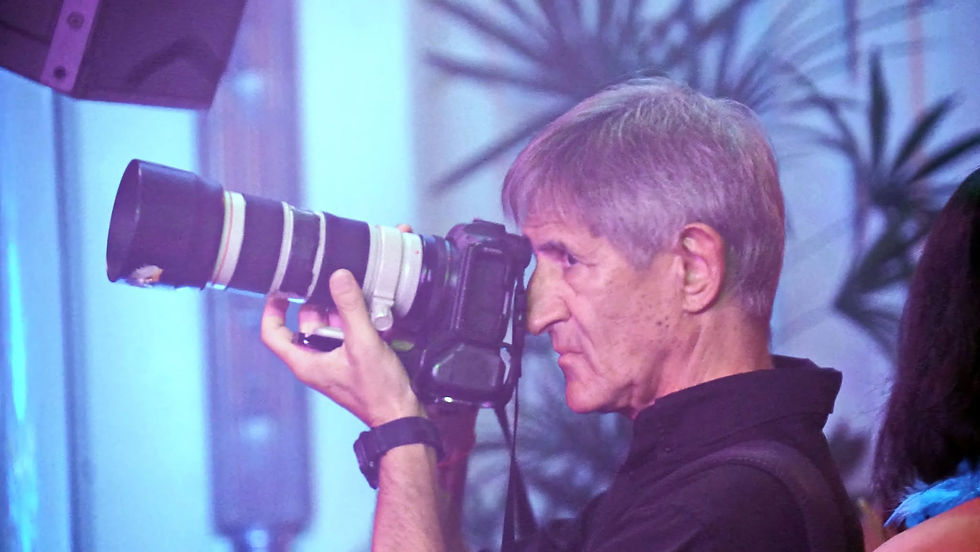Interview & Diaspora: From Cambodia to Australia, the Art of Self-Revelation According to Piyané Ung
- Editorial team

- Oct 27, 2025
- 3 min read
Last Sunday, The Gallery at Sofitel Phnom Penh Phokeethra welcomed, as part of the Oktobookfest festival, the Cambodian Piyané Ung—an engaged author, personal development coach, and inspiring voice of the Asian diaspora. In front of an audience of journalists and fans, the young woman shared her journey, struggles, and convictions.

Who is Piyané Ung?
Piyané Ung is a woman who bridges Cambodian roots with Australian experience, entrepreneur and writer, dedicated to helping both women and men on paths to self-acceptance and mental health. The notable publication of her book "The Good Girl" in Australia and Cambodia paved the way for an honest dialogue about female identity, vulnerability, and the search for meaning in contemporary society.
A Journey Born of Doubt, Forged by Courage
“I never thought I would write a book one day,” she confides with sincere humility. It was the voices of friends who insisted, the desire to convey a message in case she disappeared suddenly, which fueled her writing. After a month of work and a retreat in Bali, the manuscript was born. In November 2024, during the Australian launch, Piyané dared her first public step; the reception was warm, and the book soon crossed borders, culminating in this meeting in Phnom Penh.
The Book as a Mirror of the Female Condition
According to Piyané Ung, "The Good Girl" is not just a model to follow or a perfection to embody. It is also a social construct, sometimes painful, where women are expected to wear multiple masks—to shine, but not too brightly; to perform, but not seem authoritarian. She insists that the book is not just for women, since men experience the highest rates of suicide, highlighting that inner suffering, the pressure to appear 'strong,' and the difficulty expressing emotions affect all genders.
The Five Pillars of Fulfillment
On stage, Piyané details the pillars that she believes form the foundation of a balanced existence: physical, mental and emotional, community, spirituality, and finances. She advocates refusing to choose between them, inviting harmony and self-listening—at the heart of her message. "If my mental health falters, it doesn’t matter what I have. If my community is absent, I feel empty," she explains.
A Universal Spirituality
Far from religious dogma, Piyané promotes free and inclusive spiritual commitment. For her, it is energy, vital breath, beyond divisions and labels. Her experiences in hospitals, at the bedsides of people at the end of life, have taught her the importance of sincere relationships—the need to express regrets, to forgive, and to say "I love you" while there is still time.

Dialogue with the Audience
The interview shifts into a group conversation. Women and men alike ask questions, express their fears, and their quest for recognition. Piyané advocates authenticity in relationships, kindness toward oneself and others. Her main advice for younger generations: "Multiply authentic friendships. Surround yourself with people who lift you up. Be yourself, for that’s the greatest gift you can give."
Vulnerability as Pathway to Power
Vulnerability, far from being a weakness, becomes for Piyané a creative strength. She encourages welcoming all emotions—not only joy but also sadness, anger, fear, and doubt. Rejecting the “toxicity of too much positivity,” she honors the feelings of the moment, accepts that happiness is fleeting, and recognizes that everyone’s journey is filled with ups and downs.
"Joy is an emotion like any other. When it’s present, honor it. When it fades, welcome the next one. It’s not about remaining positive all the time, but expanding for all emotions, embracing them, and letting them go," she advises.
Horizons for Tomorrow
Asked about her future projects, Piyané reveals that her first book, "The Ripple After," has yet to be published. This work, rich in spiritual breath, should soon appear. Her commitment remains strong, her desire to share ever-growing, empowered by encouragement received in Phnom Penh and elsewhere.
A Voice for the Times
As the meeting ends, the lingering impression is of a woman who refuses conformity, who dares to discuss her wounds, the depression experienced at age 20, and her journey toward resilience. Far from naive optimism, Piyané embodies a lucid but hopeful outlook on the future:
"True wealth is in human connections, forgiveness, and sincere exchange. Nothing lasts, so offer yourself in truth," she concludes.
This weekend, at The Gallery Sofitel Phnom Penh Phokeethra, the walls heard much more than a succession of answers. They gave space to a gentle revolution—the power of vulnerability and authenticity, carried by the unique voice of Piyané Ung.







Comments